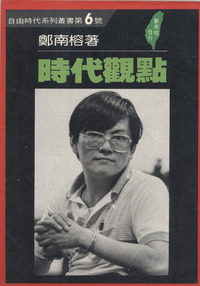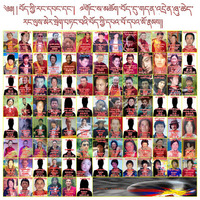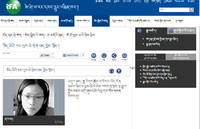2012年12月10日
國際藏學界致中國國家副主席習近平的請願書
圖伯特當下發生多起悲劇事件,因此,全世界高等學府裏研究藏學的學者,希望透過寫請願信的方式,表達他們對此事的關切,本請願書目前仍在國際藏學界的學者之間傳閱,募集簽名。
國際藏學界致中國國家副主席習近平的請願書
敬致習近平副主席:
2013年3月,您將於就任中華人民共和國國家主席,藉由這個機會,我們這群國際藏學界的學人,想向您表達我們對於西藏自區與鄰省藏區的藏語文教學之深切關注。
過去數十年裏,藏族地區建立了許多學校,我們對此深感欣慰。我們明白孩子們如果能使用自己的母語學習,往往事半功倍,好處多多。
然而過去幾年來,多個藏族地區實施新政策,開始禁止或嚴格限制學校裏面使用藏語文來教學,例如2010年青海省宣布以普通話取代藏語作為上課的語言;2012年3月,我們在青海省同仁縣,見到了中文教課書取代了原來的藏文教科書。這樣的發展對於兒童的學習是不利的,尤其是世界各國的研究以及中國內部的統計資料都顯示,孩子們使用母語來學習數理科學,課業才容易有長足的進步。
雖然如此,上述的語言政策在西藏自治區已經實施了好幾年,使得許多將來想要在政府或企業工作的好學生,反而對自己的語言與文化產生了隔閡與生疏之感。
自從《青海省中長期教育改革和發展規劃綱要》出台以來,青海的藏族人士一再透過和平的示威活動與遞交請願書等方式,表達他們對於新語言政策的反對。他們強烈地表達出學校裏面應該使用藏語文來教學與溝通的願望。這當然不代表藏族不願意學習中文,事實上藏人都明白中文在經濟上與文化上的重要性。然而,藏族人士的要求與《中華人民共和國憲法》第四條的條文是相吻合的:各民族都有使用和發展自己語言文字的自由,都有保持或改革自己的風俗習慣的自由。更何況,根據2002年西藏自治區出台的一個規定,藏語文擁有中國的官方語言的地位。我們遺憾的是,在實踐時,該地位並不總是獲得認可與尊重。
過去兩年以來,數十位不分男女僧俗老幼的藏族人士,以自焚的方式明志,其中好幾位呼喊著藏族語言文化應受尊重的口號。
作為專門研究西藏語言、文化與宗教的學者,我們想透過這封信向您表達,對於各種阻礙西藏文明傳承與延續的措施,我們憂心忡忡。我們想提醒您,西藏文明不僅是人類文明的瑰寶,也是中國政府明言保護的文化資產。我們還想提醒您,在中華人民共和國境內,藏語文是僅次於中文的古老語言,它經過千年連續使用而保留下來的豐富遺產,不僅可以幫助我們理解與重建古老的漢藏語系,讓我們明白,漢藏語系其實媲美印歐語系,也包含了數百種錯綜複雜的語言與方言。
我們的工作讓我們成為西方大學與高等學府裏面的研究人員,我們明白,西藏語文是西藏文明的基石,然而當西藏語文在世界各國的學術殿堂裏漸漸受到矚目,成為教學與研究的學科之際,我們卻看到今日的西藏自治區與許多藏族自治州裏,西藏語文愈來愈不受重視,愈來愈被邊緣化,我們非常遺憾。而藏族人民面對新出台的教育政策,自然會憂慮他們的文化即將消失,然而中國政府對他們的回應,不足以紓解他們的憂慮。
這就是為什麼在中國新的領導人上台之際,我們這群藏學家一起寫了這封信,希望您同情理解藏族人民的願望,希望您聆聽採用他們的意見,為當前的危機找出和平的解決方法,以促進西藏語言與文化的發展。我們相信,您只要採用中華人民共和國憲法歷經多次修定,卻一再標榜的多民族國家原則,藏族的語言與文化一定可以繼續跟漢族的語言與文化和諧共存。
國際藏學界致中國國家副主席習近平的請願書
敬致習近平副主席:
2013年3月,您將於就任中華人民共和國國家主席,藉由這個機會,我們這群國際藏學界的學人,想向您表達我們對於西藏自區與鄰省藏區的藏語文教學之深切關注。
過去數十年裏,藏族地區建立了許多學校,我們對此深感欣慰。我們明白孩子們如果能使用自己的母語學習,往往事半功倍,好處多多。
然而過去幾年來,多個藏族地區實施新政策,開始禁止或嚴格限制學校裏面使用藏語文來教學,例如2010年青海省宣布以普通話取代藏語作為上課的語言;2012年3月,我們在青海省同仁縣,見到了中文教課書取代了原來的藏文教科書。這樣的發展對於兒童的學習是不利的,尤其是世界各國的研究以及中國內部的統計資料都顯示,孩子們使用母語來學習數理科學,課業才容易有長足的進步。
雖然如此,上述的語言政策在西藏自治區已經實施了好幾年,使得許多將來想要在政府或企業工作的好學生,反而對自己的語言與文化產生了隔閡與生疏之感。
自從《青海省中長期教育改革和發展規劃綱要》出台以來,青海的藏族人士一再透過和平的示威活動與遞交請願書等方式,表達他們對於新語言政策的反對。他們強烈地表達出學校裏面應該使用藏語文來教學與溝通的願望。這當然不代表藏族不願意學習中文,事實上藏人都明白中文在經濟上與文化上的重要性。然而,藏族人士的要求與《中華人民共和國憲法》第四條的條文是相吻合的:各民族都有使用和發展自己語言文字的自由,都有保持或改革自己的風俗習慣的自由。更何況,根據2002年西藏自治區出台的一個規定,藏語文擁有中國的官方語言的地位。我們遺憾的是,在實踐時,該地位並不總是獲得認可與尊重。
過去兩年以來,數十位不分男女僧俗老幼的藏族人士,以自焚的方式明志,其中好幾位呼喊著藏族語言文化應受尊重的口號。
作為專門研究西藏語言、文化與宗教的學者,我們想透過這封信向您表達,對於各種阻礙西藏文明傳承與延續的措施,我們憂心忡忡。我們想提醒您,西藏文明不僅是人類文明的瑰寶,也是中國政府明言保護的文化資產。我們還想提醒您,在中華人民共和國境內,藏語文是僅次於中文的古老語言,它經過千年連續使用而保留下來的豐富遺產,不僅可以幫助我們理解與重建古老的漢藏語系,讓我們明白,漢藏語系其實媲美印歐語系,也包含了數百種錯綜複雜的語言與方言。
我們的工作讓我們成為西方大學與高等學府裏面的研究人員,我們明白,西藏語文是西藏文明的基石,然而當西藏語文在世界各國的學術殿堂裏漸漸受到矚目,成為教學與研究的學科之際,我們卻看到今日的西藏自治區與許多藏族自治州裏,西藏語文愈來愈不受重視,愈來愈被邊緣化,我們非常遺憾。而藏族人民面對新出台的教育政策,自然會憂慮他們的文化即將消失,然而中國政府對他們的回應,不足以紓解他們的憂慮。
這就是為什麼在中國新的領導人上台之際,我們這群藏學家一起寫了這封信,希望您同情理解藏族人民的願望,希望您聆聽採用他們的意見,為當前的危機找出和平的解決方法,以促進西藏語言與文化的發展。我們相信,您只要採用中華人民共和國憲法歷經多次修定,卻一再標榜的多民族國家原則,藏族的語言與文化一定可以繼續跟漢族的語言與文化和諧共存。
In light of the tragic events currently taking place in Tibet, scholars holding institutional academic positions and working all over the world in the field of Tibetan Studies wish to express their concern through this petition, which is currently still being circulated among concerned colleagues.
http://www.petitions24.net/an_appeal_to_president_xi_jinping_from_the_tibetologist_community
An Appeal to Vice-President Xi Jinping from the International Tibetan Studies Community
Dear Mr Vice-President,
As you will be assuming your new role as President of the People’s Republic of China in March 2013, the scientific community of Tibetologists would like to express to you its deep concern about the state of the Tibetan language in the Tibet Autonomous Region and in the Tibetan autonomous prefectures in neighboring provinces.
We know that many schools have been established in Tibetan areas over the last several decades, and we are delighted at that development. We also appreciate the benefits that schoolchildren can have from being educated in their own language.
However, over the last several years, the authorities have been trying to institute new measures that eliminate or severely restrict the use of Tibetan as the language of instruction in Tibetan-speaking areas, such as the replacement of Tibetan by Chinese as the medium of education (announced in Qinghai in 2010) and the replacement of textbooks written in Tibetan by Chinese textbooks —as was seen in Rebkong (Chin: Tongren) in March 2012. These developments have taken place despite the fact that worldwide research on this topic as well as official Chinese statistics have shown that students perform better when they are studying scientific subjects in their own language.
This policy has already been active in the Tibet Autonomous Region for several years and has led to well-known results: students destined for senior positions in the public or private sectors now have only a superficial knowledge of their own language and civilization.
The Tibetan people of Qinghai have repeatedly, through peaceful demonstrations by citizens, and through petitions and letters, expressed their opposition to the new language policy, which is officially designated the ''Qinghai Province Mid- and Long-Term Plan for Educational Reform and Development (2010-2020)." They have made known their strong desire to preserve their language as the medium of instruction and communication in their schools, which does not mean in any sense that they are not willing to learn Chinese. They generally acknowledge the economic and cultural significance of the Chinese language. Such requests are consistent with the Chinese Constitution which specifies in Article 4 that all nationalities have the freedom to use and develop their own spoken and written languages and to preserve or reform their own folkways and customs. Moreover, according to the decree of 2002, in the Tibet Autonomous Region, the Tibetan language has the status of an official language in China, though that status does not always seem to be reflected in practice.
Dozens of Tibetans of all ages, men and women, religious and lay, have committed acts of self-immolation over the last few years. Several of them have shouted slogans demanding respect for the language and culture of Tibet.
As specialists in the areas of Tibetan language, culture and religion, we would like to share with you, through this letter, our own concerns about the various measures that jeopardize the continuing viability of this civilization, a civilization that is one of the treasures of humanity and for which the Chinese government has clearly stated its responsibility. We would like to remind you that in China the Tibetan language is, after Chinese, one of oldest continually-used languages, and has also contributed to the understanding and reconstruction of the ancient Sino-Tibetan family, a family that, like Indo-European, contains many hundreds of languages.
Our work has led us to pursue our professional and intellectual lives within the structures of universities and institution of higher education. We know the value of Tibet’s civilization and we regret that the Tibetan language, which is its fundamental support, is seemingly marginalized and devalued in the TAR and in various other Tibetan autonomous administrative units at the same time that it is increasingly being taught and studied in universities around the world. The responses of the authorities to the demands of Tibetans who are naturally worried about the disappearance of their culture have not assuaged their deep concerns about the situation.
This is why, at the time when new leadership is taking control of the country, we address you collectively with the hope that you will be sympathetic to the aspirations of Tibetan citizens of China; that you will work with them to find peaceful solutions to this crisis that will allow for the promotion and development of Tibet’s language and culture. There is no reason why the Tibetan language and culture cannot coexist peacefully with the Chinese language and culture through the application of the principles expressed in the successive constitutions of the People’s Republic of China, which is constituted as a multicultural state.
1. Katia Buffetrille
EPHE, France
2. Elliot Sperling Indiana University, USA
3. Françoise Robin Institut National des Langues et Civilisations Orientales, France
4. Jean-Luc Achard CNRS, France
5. Gedun Rabsal Indiana University, USA
6. Amy Heller SOAS, U.K. ; Centre National de la Recherche Scientifique, France
7. Mireille Helffer CNRS, France
8. Nicolas Tournadre Aix-Marseille University, France
9. Mona Schrempf Humboldt University, Germany
10. Thierry Dodin Bonn University, Germany
11. Carole McGranahan University of Colorado, USA
12. Pascale Dollfus CNRS, France
13. Anne-Marie Blondeau EPHE, France
14. Daniel Berounsky Charles University, Czeck Republic
15. Cameron Warner Aarhus University, Denmark
16. Nicolas Sihlé CNRS, France
17. Philippe Cornu Université Catholique de Louvain, Belgium; Institut National des Langues et Civilisations Orientales, France
18. Gray Tuttle Columbia University, USA
19. Francoise Pommaret CNRS, France
20. Georges Dreyfus Williams College, USA
21. Gareth Sparham University of Walnut Creek, USA
22. Klaus-Dieter Mathes University of Vienna, Austria
23. Roberto Vitali Independent Scholar
24. Helmut Tauscher University of Vienna, Austria
25. Fiona McConnell University of Cambridge, UK
26. Robert Barnett Columbia University, USA
27. Sonam Dugdak SOAS, UK
28. Martin Mills University of Aberdeen, UK
29. Dominique Townsend Columbia University, UK
30. Mary Prude University of Wisconsin-Whitewater, USA
31. Sienna Craig Dartmouth College, USA
32. Charlene Makley Reed College, USA
33. Gillian Tan Deakin University, Australia
34. Yangdon Dhondup SOAS, UK
35. Heather Stoddard Institut National des Langues et Civilisations Orientales, France; Oriental Institute, UK
36. George FitzHerbert Oxford University, UK
37. Agata Bareja-Starzynska University of Warsaw, Poland
38. Tsering Shakya University of British Columbia, Canada
39. Tashi Tsering University of British Columbia, Canada
40. Markus Viehbeck Heidelberg University, Germany
41. Emily Yeh University of Colorado, USA
42. Samten Karmay CNRS, France
43. Robert Mayer Oxford University, UK
44. Isabelle Henrion-Dourcy University of Laval, Canada
45. Tibor Porcio University of Szeged, Hungary
46. Cathy Cantwell University of Oxford, UK
47. Alex McKay London University (retired), UK
48. Benjamin Bogin Georgetown University, USA
49. Petra Maurer Ludwig-Maximilians-Universität, Germany
50. Michela Clemente Cambridge, UK
51. Bruno Lainé Wien University, Austria
52. Per Kvaerne Oslo University, Norway
53. Maho Iuchi Harvard, USA; Kobe City University, Japan
54. Elena De Rossi Università di Roma, Italy
55. Geza Bethlenfalvy Hungarian Academy of Sciences, Hungary
56. Mara Matta Università degli Studi di Napoli 'L'Orientale' and Università di Roma 'La Sapienza', Italy
57. Giuliana Martini Dharma Drum Buddhist College, Taiwan
58. Fernand Meyer EPHE, France
59. Wim van Spengen Amsterdam University, The Netherlands
60. Janet Gyatso Harvard University, USA
61. Nawang Thokmey University of Virginia, USA
62. Tashi Nyima University of Oslo, Norway
63. Jann Ronis University of California, Berkeley, USA
64. Jose Cabezon University of California, Santa Barbara, USA
65. Frank Korom Boston University, USA
66. Christian Wedemeyer University of Chicago, USA
67. Jay Garfield Smith College, USA
68. Gregory Hillis University of California, Santa Barbara
69. Guy Newland Central Michigan University, USA
70. Francoise Wang CNRS, France
71. Douglas Duckworth East Tennessee State University, USA
72. Kevin Vose College of William and Mary Richmond, USA
73. Peter Verhagen Leiden University, The Netherlands
74. Derek Maher East Carolina University, USA
75. Jacob Dalton University of California, USA
76. Karma Lekshe Tsomo San Diego University, USA
77. Lara Braitstein McGill University, Canada
78. Christian Luczanits USA
79. Jim Blumenthal Oregon State University, USA
80. Paul Nietupski John Carrol University, USA
http://www.petitions24.net/an_appeal_to_president_xi_jinping_from_the_tibetologist_community
An Appeal to Vice-President Xi Jinping from the International Tibetan Studies Community
Dear Mr Vice-President,
As you will be assuming your new role as President of the People’s Republic of China in March 2013, the scientific community of Tibetologists would like to express to you its deep concern about the state of the Tibetan language in the Tibet Autonomous Region and in the Tibetan autonomous prefectures in neighboring provinces.
We know that many schools have been established in Tibetan areas over the last several decades, and we are delighted at that development. We also appreciate the benefits that schoolchildren can have from being educated in their own language.
However, over the last several years, the authorities have been trying to institute new measures that eliminate or severely restrict the use of Tibetan as the language of instruction in Tibetan-speaking areas, such as the replacement of Tibetan by Chinese as the medium of education (announced in Qinghai in 2010) and the replacement of textbooks written in Tibetan by Chinese textbooks —as was seen in Rebkong (Chin: Tongren) in March 2012. These developments have taken place despite the fact that worldwide research on this topic as well as official Chinese statistics have shown that students perform better when they are studying scientific subjects in their own language.
This policy has already been active in the Tibet Autonomous Region for several years and has led to well-known results: students destined for senior positions in the public or private sectors now have only a superficial knowledge of their own language and civilization.
The Tibetan people of Qinghai have repeatedly, through peaceful demonstrations by citizens, and through petitions and letters, expressed their opposition to the new language policy, which is officially designated the ''Qinghai Province Mid- and Long-Term Plan for Educational Reform and Development (2010-2020)." They have made known their strong desire to preserve their language as the medium of instruction and communication in their schools, which does not mean in any sense that they are not willing to learn Chinese. They generally acknowledge the economic and cultural significance of the Chinese language. Such requests are consistent with the Chinese Constitution which specifies in Article 4 that all nationalities have the freedom to use and develop their own spoken and written languages and to preserve or reform their own folkways and customs. Moreover, according to the decree of 2002, in the Tibet Autonomous Region, the Tibetan language has the status of an official language in China, though that status does not always seem to be reflected in practice.
Dozens of Tibetans of all ages, men and women, religious and lay, have committed acts of self-immolation over the last few years. Several of them have shouted slogans demanding respect for the language and culture of Tibet.
As specialists in the areas of Tibetan language, culture and religion, we would like to share with you, through this letter, our own concerns about the various measures that jeopardize the continuing viability of this civilization, a civilization that is one of the treasures of humanity and for which the Chinese government has clearly stated its responsibility. We would like to remind you that in China the Tibetan language is, after Chinese, one of oldest continually-used languages, and has also contributed to the understanding and reconstruction of the ancient Sino-Tibetan family, a family that, like Indo-European, contains many hundreds of languages.
Our work has led us to pursue our professional and intellectual lives within the structures of universities and institution of higher education. We know the value of Tibet’s civilization and we regret that the Tibetan language, which is its fundamental support, is seemingly marginalized and devalued in the TAR and in various other Tibetan autonomous administrative units at the same time that it is increasingly being taught and studied in universities around the world. The responses of the authorities to the demands of Tibetans who are naturally worried about the disappearance of their culture have not assuaged their deep concerns about the situation.
This is why, at the time when new leadership is taking control of the country, we address you collectively with the hope that you will be sympathetic to the aspirations of Tibetan citizens of China; that you will work with them to find peaceful solutions to this crisis that will allow for the promotion and development of Tibet’s language and culture. There is no reason why the Tibetan language and culture cannot coexist peacefully with the Chinese language and culture through the application of the principles expressed in the successive constitutions of the People’s Republic of China, which is constituted as a multicultural state.
1. Katia Buffetrille
EPHE, France
2. Elliot Sperling Indiana University, USA
3. Françoise Robin Institut National des Langues et Civilisations Orientales, France
4. Jean-Luc Achard CNRS, France
5. Gedun Rabsal Indiana University, USA
6. Amy Heller SOAS, U.K. ; Centre National de la Recherche Scientifique, France
7. Mireille Helffer CNRS, France
8. Nicolas Tournadre Aix-Marseille University, France
9. Mona Schrempf Humboldt University, Germany
10. Thierry Dodin Bonn University, Germany
11. Carole McGranahan University of Colorado, USA
12. Pascale Dollfus CNRS, France
13. Anne-Marie Blondeau EPHE, France
14. Daniel Berounsky Charles University, Czeck Republic
15. Cameron Warner Aarhus University, Denmark
16. Nicolas Sihlé CNRS, France
17. Philippe Cornu Université Catholique de Louvain, Belgium; Institut National des Langues et Civilisations Orientales, France
18. Gray Tuttle Columbia University, USA
19. Francoise Pommaret CNRS, France
20. Georges Dreyfus Williams College, USA
21. Gareth Sparham University of Walnut Creek, USA
22. Klaus-Dieter Mathes University of Vienna, Austria
23. Roberto Vitali Independent Scholar
24. Helmut Tauscher University of Vienna, Austria
25. Fiona McConnell University of Cambridge, UK
26. Robert Barnett Columbia University, USA
27. Sonam Dugdak SOAS, UK
28. Martin Mills University of Aberdeen, UK
29. Dominique Townsend Columbia University, UK
30. Mary Prude University of Wisconsin-Whitewater, USA
31. Sienna Craig Dartmouth College, USA
32. Charlene Makley Reed College, USA
33. Gillian Tan Deakin University, Australia
34. Yangdon Dhondup SOAS, UK
35. Heather Stoddard Institut National des Langues et Civilisations Orientales, France; Oriental Institute, UK
36. George FitzHerbert Oxford University, UK
37. Agata Bareja-Starzynska University of Warsaw, Poland
38. Tsering Shakya University of British Columbia, Canada
39. Tashi Tsering University of British Columbia, Canada
40. Markus Viehbeck Heidelberg University, Germany
41. Emily Yeh University of Colorado, USA
42. Samten Karmay CNRS, France
43. Robert Mayer Oxford University, UK
44. Isabelle Henrion-Dourcy University of Laval, Canada
45. Tibor Porcio University of Szeged, Hungary
46. Cathy Cantwell University of Oxford, UK
47. Alex McKay London University (retired), UK
48. Benjamin Bogin Georgetown University, USA
49. Petra Maurer Ludwig-Maximilians-Universität, Germany
50. Michela Clemente Cambridge, UK
51. Bruno Lainé Wien University, Austria
52. Per Kvaerne Oslo University, Norway
53. Maho Iuchi Harvard, USA; Kobe City University, Japan
54. Elena De Rossi Università di Roma, Italy
55. Geza Bethlenfalvy Hungarian Academy of Sciences, Hungary
56. Mara Matta Università degli Studi di Napoli 'L'Orientale' and Università di Roma 'La Sapienza', Italy
57. Giuliana Martini Dharma Drum Buddhist College, Taiwan
58. Fernand Meyer EPHE, France
59. Wim van Spengen Amsterdam University, The Netherlands
60. Janet Gyatso Harvard University, USA
61. Nawang Thokmey University of Virginia, USA
62. Tashi Nyima University of Oslo, Norway
63. Jann Ronis University of California, Berkeley, USA
64. Jose Cabezon University of California, Santa Barbara, USA
65. Frank Korom Boston University, USA
66. Christian Wedemeyer University of Chicago, USA
67. Jay Garfield Smith College, USA
68. Gregory Hillis University of California, Santa Barbara
69. Guy Newland Central Michigan University, USA
70. Francoise Wang CNRS, France
71. Douglas Duckworth East Tennessee State University, USA
72. Kevin Vose College of William and Mary Richmond, USA
73. Peter Verhagen Leiden University, The Netherlands
74. Derek Maher East Carolina University, USA
75. Jacob Dalton University of California, USA
76. Karma Lekshe Tsomo San Diego University, USA
77. Lara Braitstein McGill University, Canada
78. Christian Luczanits USA
79. Jim Blumenthal Oregon State University, USA
80. Paul Nietupski John Carrol University, USA
Posted by rosaceae at 01:07│Comments(0)
│行動與抗議
※このブログではブログの持ち主が承認した後、コメントが反映される設定です。













